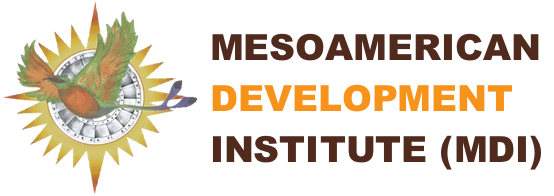Here is some background on how Cooperative COMISUYL is contributing to its members and the community as a whole. It is important to note that we are in the initial stage of the program, with one solar/biofuel dryer installed. The effort and track record of COMISUYL has lead the Honduran Forest Service and the mayors of the municipalities that rely on Pico Pijol National Park for their drinking water, to designate COMISUYL and our institute (Mesoamerican Development Institute) as Co-Managers of Pico Pijol National Park. This designation is in order to expand the model to a larger community. The government of Honduras is now working with MDI to create the Yoro Biological Corridor that will link four National Parks of Yoro,
Honduras, in order to support productive rural enterprise working in harmony with cloud forests and national parks. This region includes nearly 8,000 small coffee producers.
Some context is important in framing both the successes and challenges for Cooperative COMISUYL, as they are unique in their efforts if the coffee sector:
- Expanding coffee production is the primary threat to the national park system in Honduras and throughout much of Central America. Cloud forest are cleared by land owners and replaced with monocultures of high-grown coffee for the specialty market. Coffee buyers pay a premium for this coffee, and this trend is threatening the water supplies for the surrounding municipalities. As forest is cleared, water resources decline. Both drinking water and water to power nearby hydro utilities are becoming in short supply. A forest-friendly production method endorsed by the US and Honduran Forest Services and others in the conservation community is being introduced through the Café Solar® program.
- Deforestation to make way for coffee is compounded by the thermal energy requirements to dry coffee using conventional drying equipment—these dryers use vast quantities of wood to supply thermal energy. The equipment to dry coffee has not changed over nearly a century. Café Solar® uses state-of-the-art renewable energy technology to reduce electricity consumption in drying by 80%, while eliminating the use of firewood entirely. The Costa Rican Coffee Institute has declared the use conventional wood burning dryers an “environmental emergency.”
- Honduras ranks last in income equality in the Americas according to the United Nations. This is reflected in the concentration of processing and export capability in very few hands, most often multinationals or wealthy families. In addition, many coffee policies favor of wealthy sectors of the industry. For example, in Honduras, farmers must provide by law, 5% of their production at below cost to a monopoly that roasts coffee nationwide in Honduras. Cooperative COMISUYL has public opposed such policies and has been expelled from the coffee producers association now for several years.
COMISUYL’s processing and export center is the first in the coffee-rich state of Yoro. For the first time in nearly 100 years, 3rd and 4th generation farmers are able to process and directly export their harvest, resulting in better prices and the creation of desirable jobs for local youth in running the off-grid facility and exporting coffee to Canada, US, Sweden, France and Ireland.
See how COMISUYL and Cafe Solar(R) are providing a Solutions for the above challenges to sustainability: Watch this enjoyable slideshow prepared by our Canadian Partners!



